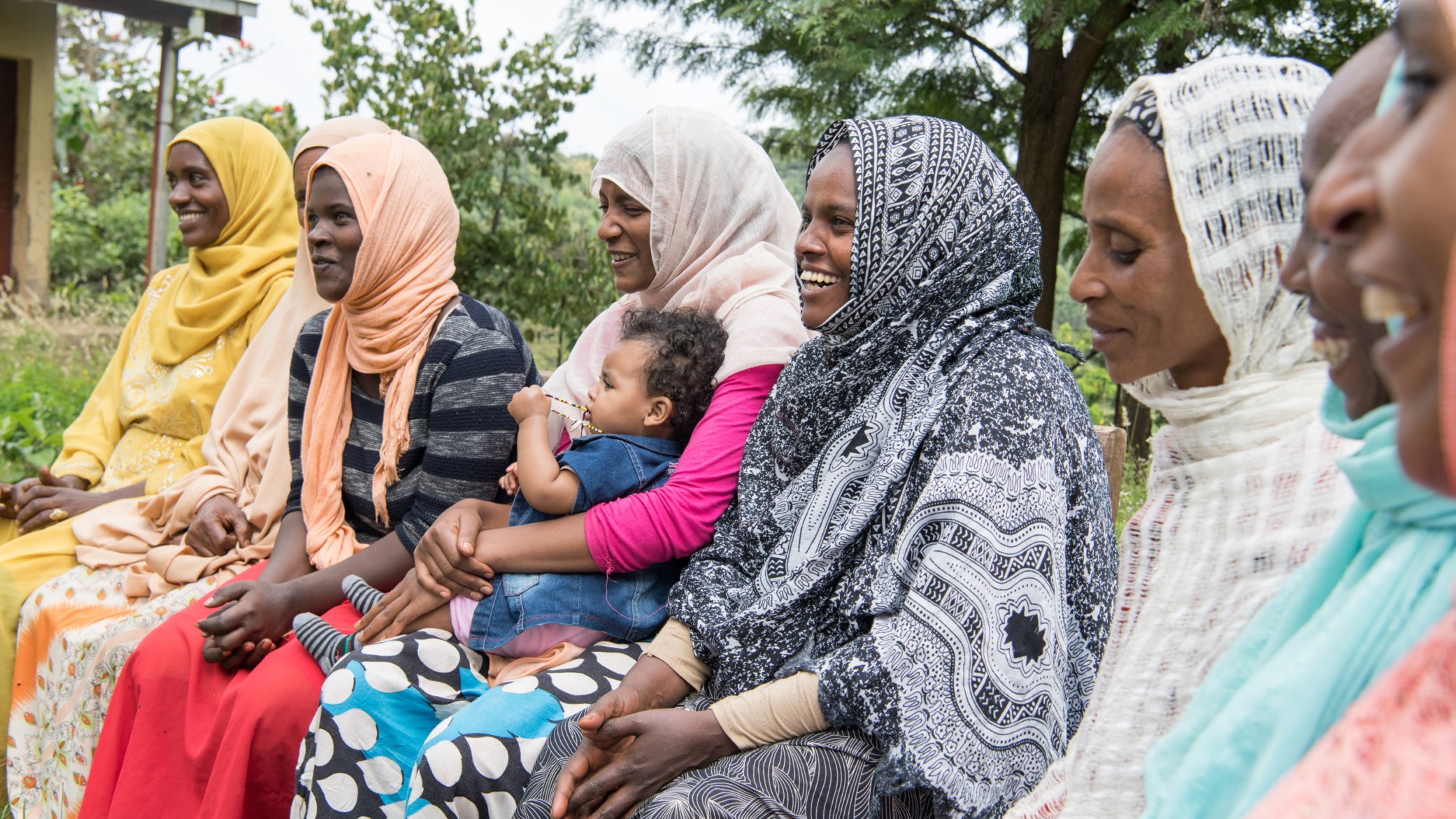Evidence-Informed Policymaking: Time for a refresh

Cliquez ici pour lire en français
The Hewlett Foundation is excited to launch a strategy refresh process for its Evidence-Informed Policymaking (EIP) grantmaking, within the foundation’s broader Gender Equity and Governance (GEG) Program. A direct manifestation of the foundation’s commitment to outcome-focused philanthropy, strategy refreshes are conducted every five years to ensure that our work remains current, meaningful, and of high-impact.
While the foundation has been investing in the evidence-informed policymaking space for close to a decade, the current EIP strategy was developed in 2018. It supports grantees with the goal of helping governments — primarily in East and West Africa — to systematically use evidence to improve social and economic policies over time, and in doing so, better respond to the needs of their people. Hewlett Foundation grantees work to advance this goal in three different ways: helping governments use evidence to improve policy processes and systems, contributing to evidence-informed improvements in specific government policies and programs, and strengthening the emerging field of evidence-informed policymaking itself.
More specifically, the Hewlett Foundation’s EIP team focuses on supporting grantees executing work in three distinct areas: impact evaluation; data revolution and data governance; and think tanks (primarily based in the Global South) working to institutionalize and promote evidence use by governments. By focusing in these three areas, the Hewlett Foundation seeks to drive socially beneficial, evidence-informed change at different levels — from the field, to specific policies and programs, to policymaking systems.
As with most strategic refresh processes at the foundation, the entire effort is expected to last about a year and will be organized into two distinct phases.
- Phase 1: Look back and look around. The purpose of this phase is two-fold. First, there will be a reflection on what has been accomplished to date through an evaluation of the EIP team’s current grantmaking (a “look back”). Second, there will be a broad landscape scan to understand current trends in the field of evidence-informed policymaking itself (a “look around”). The evaluation will be guided by the current strategy’s theory of change, and includes a review of internal documents, conversations, and dialogues with grantee partners and other key stakeholders. The landscape scan will look at trends in evidence-informed policymaking globally and, more specifically, in East and West Africa. The foundation hopes to understand the current and future state of evidence-informed policymaking in the African context, especially how it is evolving given the profound shocks of the past five years, like COVID-19, climate change, and rising authoritarianism. In addition, the process will aim to identify gaps and opportunities for future funding that complement and enhance the work of others.
- Phase 2: Look ahead. This phase will focus on developing the refreshed strategy (the “look ahead”). It will define the areas the Hewlett Foundation will continue to support, and identify promising areas to elevate. The foundation will hold collaborative sessions to reflect on how Hewlett’s unique assets and capabilities can have maximal impact. These ideas will be shared and tested with grantee partners, peer funders, and other stakeholders to ensure that the final strategy best reflects the needs of the field. At various times during the strategy development process, Hewlett’s Board of Directors will also be consulted for refinement and input.
As it works through these two phases, the EIP team plans to ask several important questions that will define new strategic choices to build on the foundation that has been established through the current strategy. Examples include:
- Global vs. local: Given the increasing maturity of the evidence-informed policymaking field, what is the right balance of support for setting global norms and coordination versus more localized support?
- Wider vs. narrower: To what extent should new grantmaking be narrowed to specific geographies/countries, sectors, and/or problem sets compared to the current approach defined by its inherently broad, field-building nature?
- Focus areas: To what extent is the evidence-informed policymaking field best defined by the three current focus areas of impact evaluation, data revolution and data governance, and think tanks working to institutionalize evidence use? How have these three areas evolved over the past five years; are they still the right focus areas; and what, if anything, is being missed?
- Internal synergy: Could EIP’s grantmaking be even more impactful if it was “in service of” other parts of our GEG Program, especially Inclusive Governance (EIP’s historical sister substrategy within the GEG program)?
Ultimately, the strategy refresh process will make clear what the Hewlett Foundation stands for in the evidence-informed policymaking space, ensuring that the portfolio advances ideas and supports institutions working to promote a better world. In a world gripped by crisis after crisis, evidence-informed policymaking is as important as ever, and the foundation recognizes that it needs a refreshed strategy that best reflects this current reality.
To that end, the Hewlett Foundation’s Guiding Principles will underpin all stages of the strategy refresh. In particular, the strategy refresh will:
- Be outcome-oriented to ensure maximum effectiveness of the Hewlett Foundation’s support, and thus help drive meaningful, socially beneficial change.
- Be conducted in a collaborative fashion, based on mutual respect; diversity, equity, and inclusion; and a spirit of humility.
- Be done in a way that maximizes transparency, openness, and a commitment to learning.
Strategy refreshes are exciting, but also daunting. The Hewlett Foundation is committed to a process that creates a strong, meaningful strategy, built through intensive collaboration with its grantees and broader stakeholders around the world. Throughout the strategy refresh process, the foundation will share updates about our learnings, how they are shaping the EIP team’s thinking, and what it might mean for current dialogues and debates about the future of evidence-informed policymaking. The foundation welcomes general questions and/or comments at HewlettEIP@hewlett.org, and looks forward to engaging its partners and broader stakeholders in this process during the coming months.
